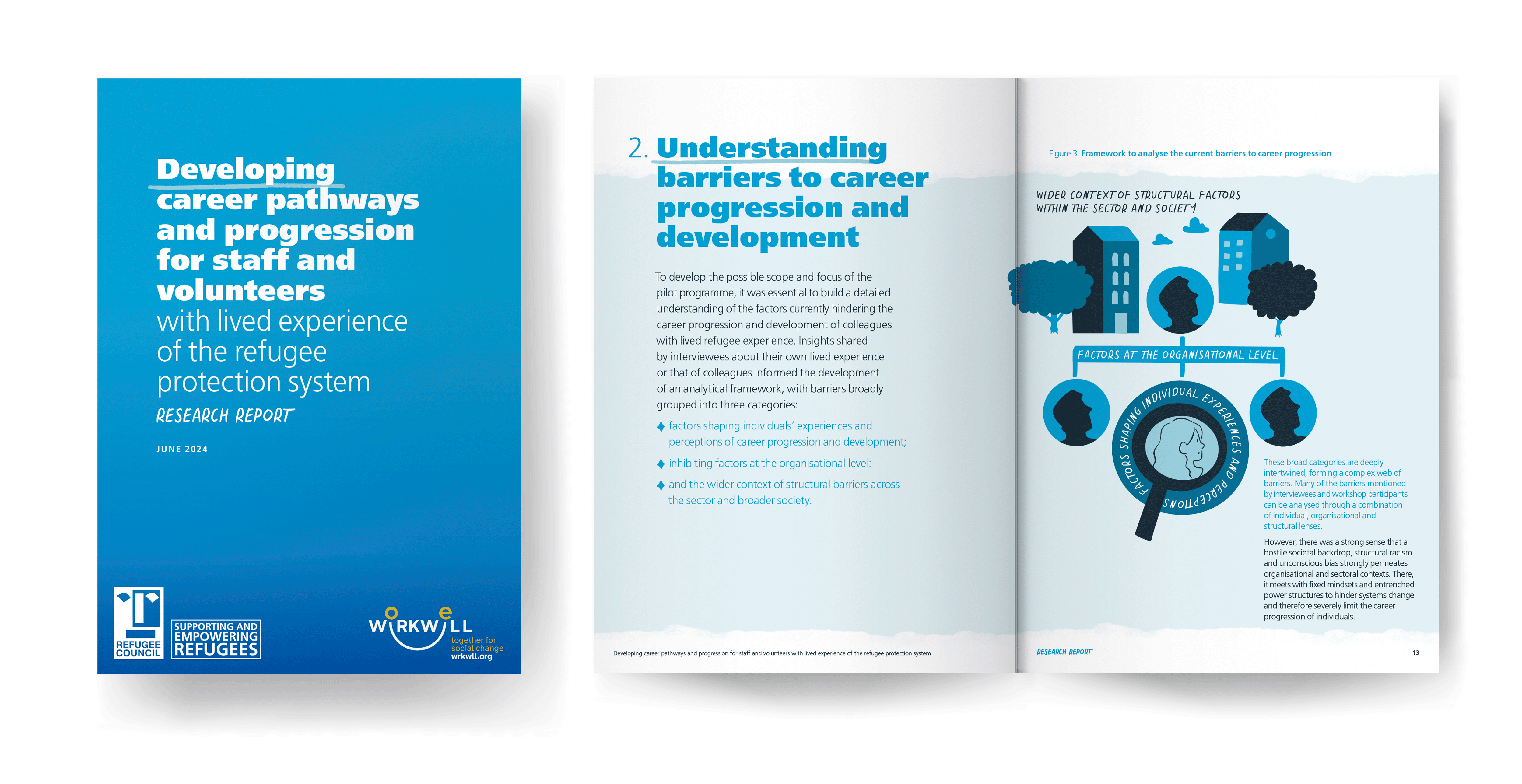Lived Experience Career Development Research Report
The Refugee Council and WRKWLL have co-produced a new report on the barriers to career progression and development faced by colleagues with lived experience. Co-produced with a steering group from across the sector, our research explores intersecting structural, organisational and individual factors that affect barriers to career progression and initiatives to respond to them.
The research findings are now being used to develop a number of career development initiatives, which will be piloted later in 2024; as well as broader recommendations.
"A good job is one where I can authentically be myself and where my authenticity enables me to excel in my role without worrying about conforming to expectations."

About the research
We launched our lived experience career development project in November 2023 to ensure that staff and volunteers with lived experience who work at the Refugee Council or in the wider refugee and migration sector can achieve their full potential.
This research report shares our findings from in-depth interviews and workshops with:
- Current and former staff and volunteers from the Refugee Council
- Staff and volunteers from other organisations in the refugee and migration sector
- Other sectors that have pioneering approaches to lived experience career progression.
- Participants highlighted a range of structural, organisational and individual factors that act as barriers to career progression and often intersect.
"Roles for people with lived experience are pigeon-holed to just translation or cooking, but refugees have so much to give. We don’t give people with lived experience budgets."
Potential responses to career progression barriers
Participants highlighted that initiatives will only bring about sustained change if they tackle structural, organisational and individual factors. They must also be supported by adequate resources, commitment from leaders, and collaboration.
Suggested responses included:
- Raising awareness of lived experience barriers and sharing good practice
- Consistently good quality, informed line management
Transparent internal recruitment processes that are easy to navigate - Coaching, mentoring and peer support networks
Toolkits with CV and goal setting templates, interview tips and skills audits - Tailored development and upskilling courses (e.g., English language writing courses)
- Inclusive policies, processes and communications
Capacity building and wellbeing support.
"I have a friend from Rwanda who initially struggled to pursue her ambitions until she received mentoring and coaching support. With encouragement, she overcame her doubts, pursued further education, and ultimately succeeded in her field."
